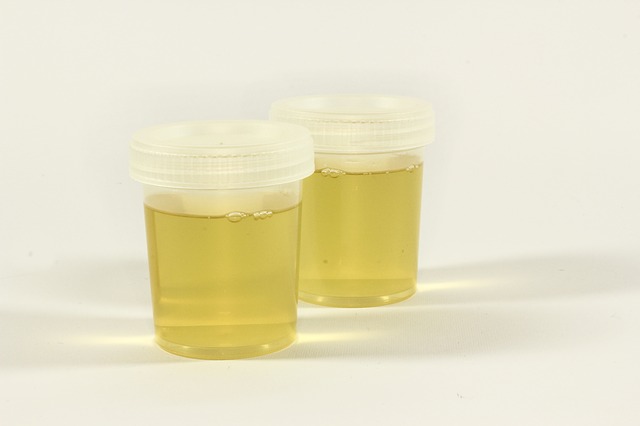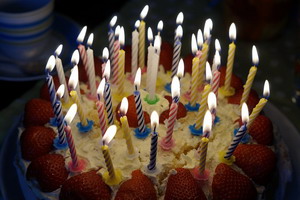
I am sneaking up on my 66th birthday, and like many men my age I am dealing with an enlarged prostate. By age 85 almost 90% of men will have this issue. Depending upon just how large it gets, it can produce symptoms that vary from annoying to life threatening. What kind of symptoms are we talking about?
Frequent urination
Urinary urgency
Difficulty starting a stream
Having to pee at night more than once
Weak urinary stream – stops and starts
Dribbling or leakage
Small amounts of urine
Straining to urinate
Bladder does not empty completely
Burning or pain on urination
Blood in urine
Blockage of urine flow
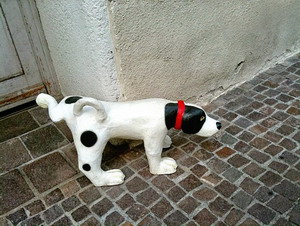
For me it started with having to pee several times at night. My general practitioner sent me to a urologist to get checked out. He was able to determine through an ultrasound scan that my prostate was quite enlarged and that my bladder did not empty completely. He gave me two options – cut it out or drug it. At the time neither option sounded attractive. This was almost 10 years ago. I decided to simply live with the night urination issue while I tried various natural remedies. This worked a bit for many years, but about 6 months ago symptoms started multiplying. Apparently the prostate decided to keep growing until it was squeezing the urethra way too much. Initially I thought I was suffering from overactive bladder syndrome. But when my flow of urine got blocked completely recently, the prostate came up as the real cause. The first seven symptoms are shared by both conditions.
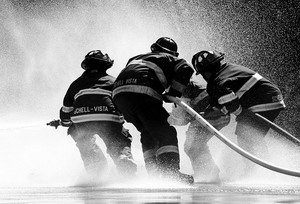
Complete blockage is an emergency situation as the urine backs up and damages the kidneys. This necessitates a trip to the ER so a catheter can be inserted to relieve the pressure and drain out the urine. Your bladder is only designed to hold about 2 cups of fluid. So if you are drinking 8 cups of water a day, it does not take long for things to back up to a danger level. The backward pressure of the urine will swell the kidneys and tear the fragile tissue there. The first sign is a kidney stone like pain in the flanks – not as intense and more continuous.
What causes enlargement of the prostate? Although most places on the internet will say that no one knows why, this is not quite true. Enlargement is caused by the hormone DHT (7-dihydro testosterone). DHT is about 10 times as strong as testosterone as an anabolic steroid (think weight lifting steroids). It makes the prostate grow. It also causes male pattern baldness. When you are young, it is responsible for the development of male physical traits. What is not known is why men convert more of the regular testosterone into DHT as they grow older. The prostate is particularly targeted because it has a lot of the enzyme for making this conversion.
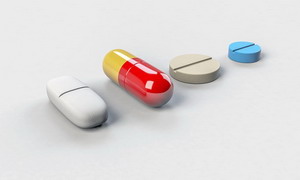
Once the prostate has enlarged, there are various drugs that doctors use to try to stop this enzyme, and other drugs to help relax the urinary muscles to help with the flow problems. Of course these all have side effects, which is why I did not use any of them 10 years ago. However, when things ramp up to the level of restriction I have now, those side effects are minimal compared to the complications associated with complete blockage. Even the pain of the catheter is better than the symptoms I was having that prompted me to make a visit to ER the other day.
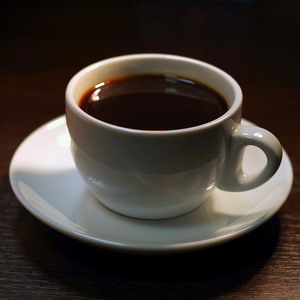
Natural remedies include: saw palmetto, beta-sitosterol, stinging nettle, pumpkin seeds, pygeum, zinc, omega-3 oils, and a combo of the amino acids glycine, alanine, and glutamic acid. While I was up visiting my brother a couple weeks ago, he was telling me about a urologist back east that claims he has found the real cure and has over 10,000 cases to prove it. He says that the prostate problem is triggered by caffeine/stimulants, alcohol, and/or spicy foods. Avoiding all of these for 2 weeks is supposed to resolve the problems. Avoiding caffeine includes such foods as chocolate, tea, coffee, energy drinks, and so on. Other sources suggest such foods as citrus and medications such as antihistamines and decongestants make benign prostatic hyperplasia (BPH) worse.
Of course the real bug-a-boo with an enlarged prostate is making sure that the reason for the enlargement is not prostate cancer. The old school method for checking this is a digital prostate exam. The prostate should be about the size of a walnut and should be soft and smooth. When the doctor does the exam, he is feeling the prostate through the wall of the lower colon. He wants to be sure it has not enlarged, gotten hard, or bumpy. Many doc’s still use the PSA blood test, even though it has not been found to be a reliable test. The gold standard is a punch biopsy where 20 to 30 core samples are extracted from the prostate and examined under a microscope looking for cancer. Hopefully nothing nasty shows up.
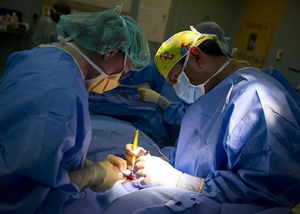
Okay, so now you have a significant enlargement. What do they do for it? Essentially they have to get rid of the excess prostate tissue. Drugs are a little help in the beginning, but somewhere down the line the fancy tools come out for removing this tissue. There are many different techniques today that are much less invasive than the old school direct surgical removal of the prostate. That surgery tended to have some very unfortunate side effects like loss of bladder control and loss of sexual functioning. Newer techniques involve frying the prostate with microwaves, hot water, different laser types, electric wires, radiofrequency ablation, and pulling out the pieces. Two other newer techniques involve lifting the prostate away from the urethra with sutures and the other cuts off blood flow to the prostate and allows it to shrink on its own.
Unfortunately none of these is completely risk free and each has their own set of issues. One patient I have that went through this last year says he had bleeding for 6 months and has to do regular Kegel exercises to prevent leakage. None of this sounds particularly pleasant, but the alternative is exploding your kidneys.
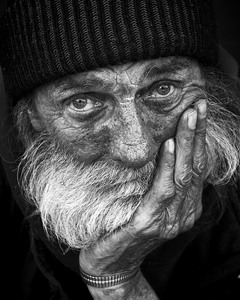
I think my son said it best recently. In talking with his clients that are older, none of them had anything good to say about the physical consequences of aging. This is not a cheery article, but the purpose was to make you aware of what is going on with having to get up so often in the night to pee. Getting on top of this issue early will only make life a little easier for you. If we make it to 80, only 10% of us will miss out on this lovely experience. BPH is the most common health issue for men over 50.
Take care,
David
